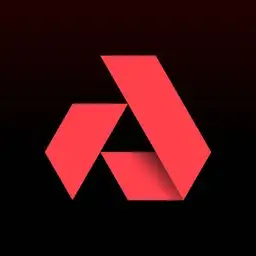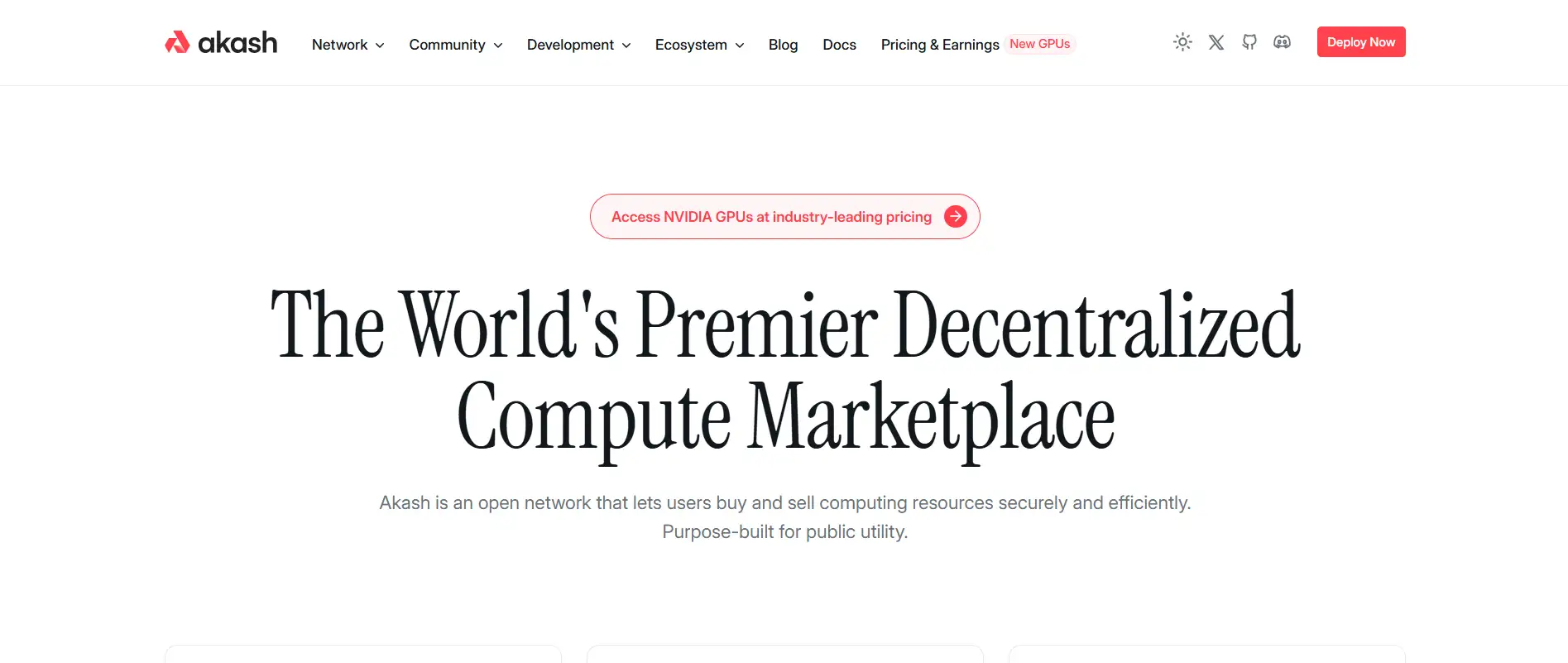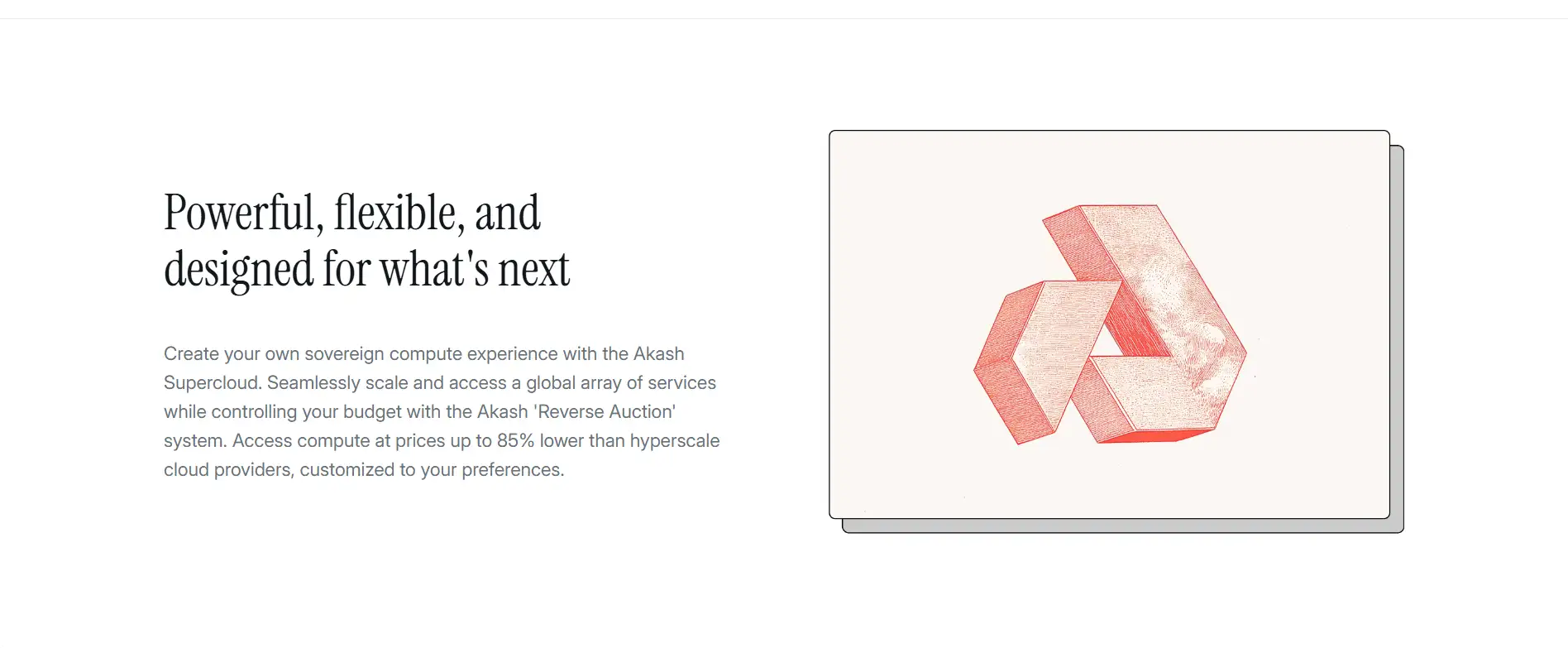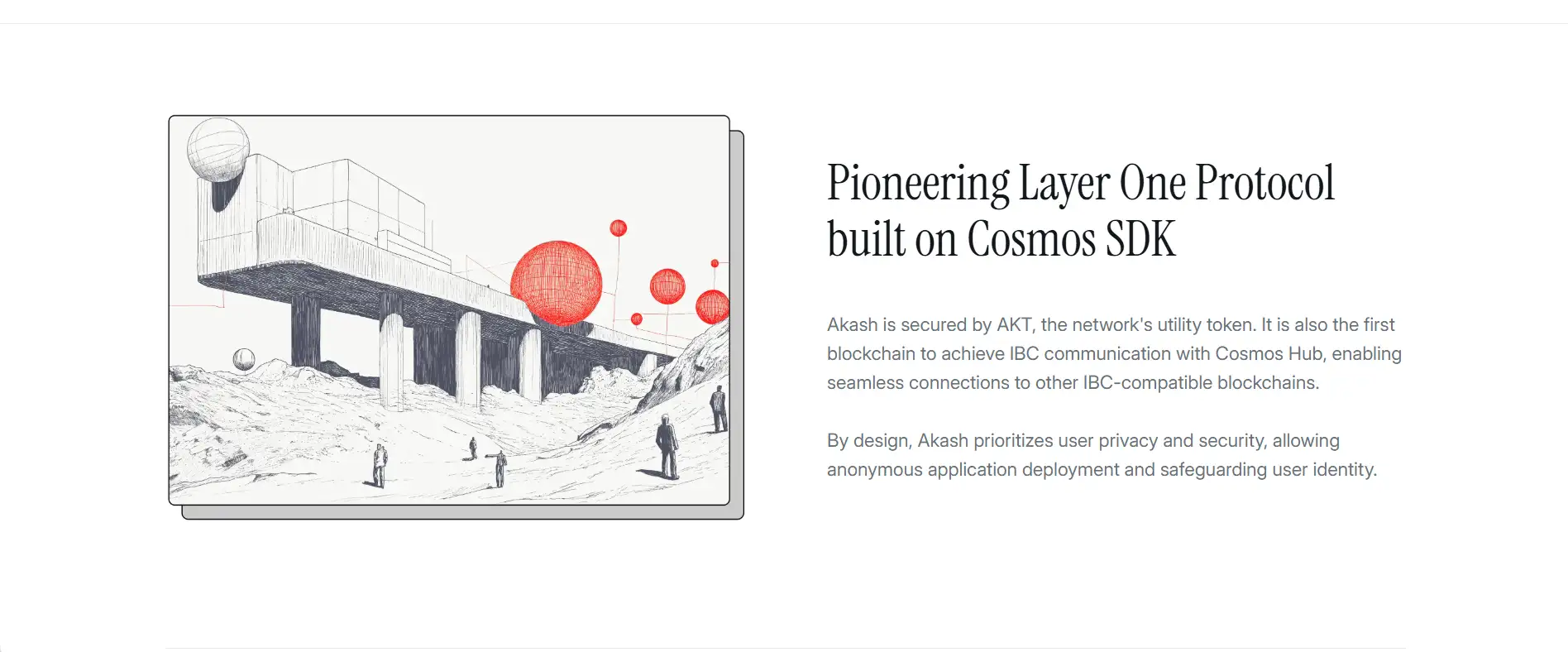About Akash Network
Akash Network is a pioneering decentralized compute marketplace that enables users to securely buy and sell computing resources with unmatched efficiency. Designed to challenge centralized cloud giants, Akash Network offers a flexible, permissionless, and open-source alternative that significantly reduces cloud costs while increasing accessibility.
Powered by the AKT token and built on the Cosmos SDK, Akash provides users with access to a global network of compute providers, including high-performance GPUs. Whether you're deploying Web3 apps, hosting AI/ML workloads, or running decentralized infrastructure, Akash makes cloud computing more secure, private, and affordable.
Akash Network is redefining cloud infrastructure by offering a truly decentralized, open-source alternative to legacy cloud providers. It operates as a global, permissionless marketplace where developers can lease compute resources—such as CPUs and high-performance GPUs—directly from a distributed network of providers. This model drastically reduces costs, eliminates vendor lock-in, and promotes transparency, with typical pricing up to 85% lower than centralized options.
At the core of Akash’s architecture is its reverse auction system, which lets tenants set budgets and providers bid to fulfill the workload. Built with Kubernetes orchestration and powered by the Cosmos SDK, Akash is ideal for deploying containerized applications—from AI models and decentralized apps to enterprise services—across multiple regions, using a single YAML file.
A standout in the emerging DePIN (Decentralized Physical Infrastructure) movement, Akash Network rivals traditional cloud platforms such as Amazon Web Services (AWS), Google Cloud, and Microsoft Azure by offering users direct control over infrastructure at a lower cost. In the decentralized space, it competes with projects like Filecoin (focused on storage), Ankr (RPC and node hosting), and Edgevana (bare-metal cloud infrastructure).
Unlike many decentralized compute projects, Akash supports full container workloads, GPU access, persistent storage, and dedicated IP leasing, making it suitable for advanced deployments like LLMs, game servers, or Web3 backend infrastructure. With native AKT token integration for payment, governance, and staking, Akash also empowers a growing community to secure and evolve the network collectively.
Akash Network offers a powerful set of features and benefits designed to enable open, cost-effective cloud computing:
- Reverse Auction System: Developers set their price and providers bid, driving highly competitive rates for compute services.
- GPU Leasing: Access powerful GPUs like A100, H100, and T4 from trusted providers for AI and ML workloads.
- Persistent Storage & Dedicated IPs: Keep your data and networking configurations stable across sessions.
- Permissionless Deployment: Anyone can deploy anonymously, without approval or censorship.
- Cosmos SDK & IBC Integration: Full support for Cosmos’ ecosystem and on-chain interoperability.
- Open-source Infrastructure: 100% community-owned, with transparent code and governance.
Getting started with Akash Network is simple for developers and providers alike:
- Create a Deployment: Visit Akash Console to create an SDL file and define your container's compute needs.
- Receive Bids: Submit your deployment and automatically receive competitive bids from network providers.
- Choose the Best Offer: Select a bid and launch your application on high-performance, decentralized hardware.
- Fund with AKT: Add AKT tokens to your account to pay for leases. Buy AKT on exchanges like Coinbase or Osmosis.
- Become a Provider: Offer your hardware via the Provider Console and earn passive income in AKT by leasing compute.
- Explore the Docs: Access tutorials, CLI tools, and community guides at docs.akash.network.
Akash Network FAQ
Akash Network uses a reverse auction model where developers define their compute needs and maximum price via a YAML-based SDL file. Compute providers across the network then bid to fulfill the request, and the lowest bidder wins the lease. This model drives down pricing and provides market-driven cloud access. Get started at akash.network.
Yes. Akash Network supports leasing powerful GPUs like A100, H100, and T4, enabling developers to deploy AI models such as Mistral-7B and image generators like AkashGen. With lower GPU costs and no centralized approval process, Akash is ideal for cost-efficient AI/ML workloads. Explore deployment at akash.network.
Akash Network is a decentralized alternative to centralized cloud providers. It doesn’t own infrastructure but instead connects developers with underused capacity via an open marketplace. It offers up to 85% lower costs, peer-to-peer privacy, no vendor lock-in, and permissionless access—making it more aligned with Web3 principles. Compare now at akash.network.
The AKT token serves as the native utility currency on Akash Network. It is used for paying for compute deployments, staking to secure the network, and participating in governance decisions. Providers earn AKT as rewards, and token holders influence protocol updates via on-chain voting. Learn more at akash.network/token.
You can become an Akash Provider by registering your hardware through the Akash Provider Console. After setup, your resources become available for lease in the marketplace, and you earn AKT tokens whenever users deploy workloads to your nodes. Setup is open to individuals and enterprises alike. Start now at akash.network.
You Might Also Like












